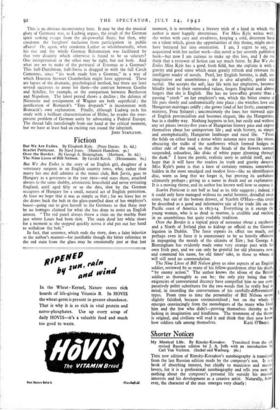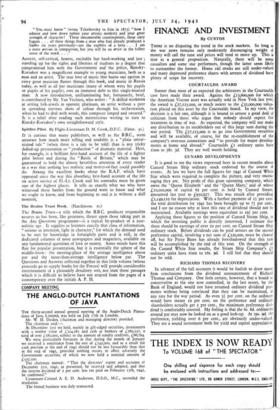Shorter Notices My Musical By Rimsky-Korsakov. Translated from the 5th
revised Russian edition by J. A. Joffe with an introduction by Carl Van Vechten. (Seeker and Warburg. 36s.) Tins new edition of Rimsky-Korsakov's autobiography is translated from the last Russian edition made by the compciser's son. It i5 3 book of absorbing interest, but chiefly to musicians and music- lovers, for it is a professional autobiography and tells you next to nothing about the composer's personal life outside his musical interests and his development as a creative artist. Naturally, how' ever, the character of the man emerges very clearly: " You must know " (wrote Tchaikovsky to him in 1875) " how I admire and bow down before your artistic modesty and your great strength of character! These innumerable counterpoints, these sixty fugues . . . all these things from a man who had already produced a Sadko six years previously—are the exploits of a hero . . . I am a mere artisan in comparison, but you will be an artist in the fullest sense of the word. . . ."
Austere, self-critical, honest, excitable but hard-working and just ; standing up for the rights and liberties of students to a degree that compromised him with the Government and 'the police, Rimsky- Korsakov was a magnificent example to young musicians, both as a man and an artist. The true love of music that burns out egoism in every great musician flames through this book, and music in Russia today, as well as all her musicians (many of whom were his pupils or pupils of his pupils), owe an immense debt to this single-hearted man. A new introduction, unilluminating but, fortunately, brief, is contributed by Mr. Van Vechten, who writes : " A skilled workman at setting folk-jewels in operatic platinum, an artist without a peer in spreading nervous shots of colour through his orchestration, when he had to deal with words, this composer limped and sweated." It is a relief after reading such meretricious writing to turn to Rimsky-Korsakov's own straightforward style.



























 Previous page
Previous page